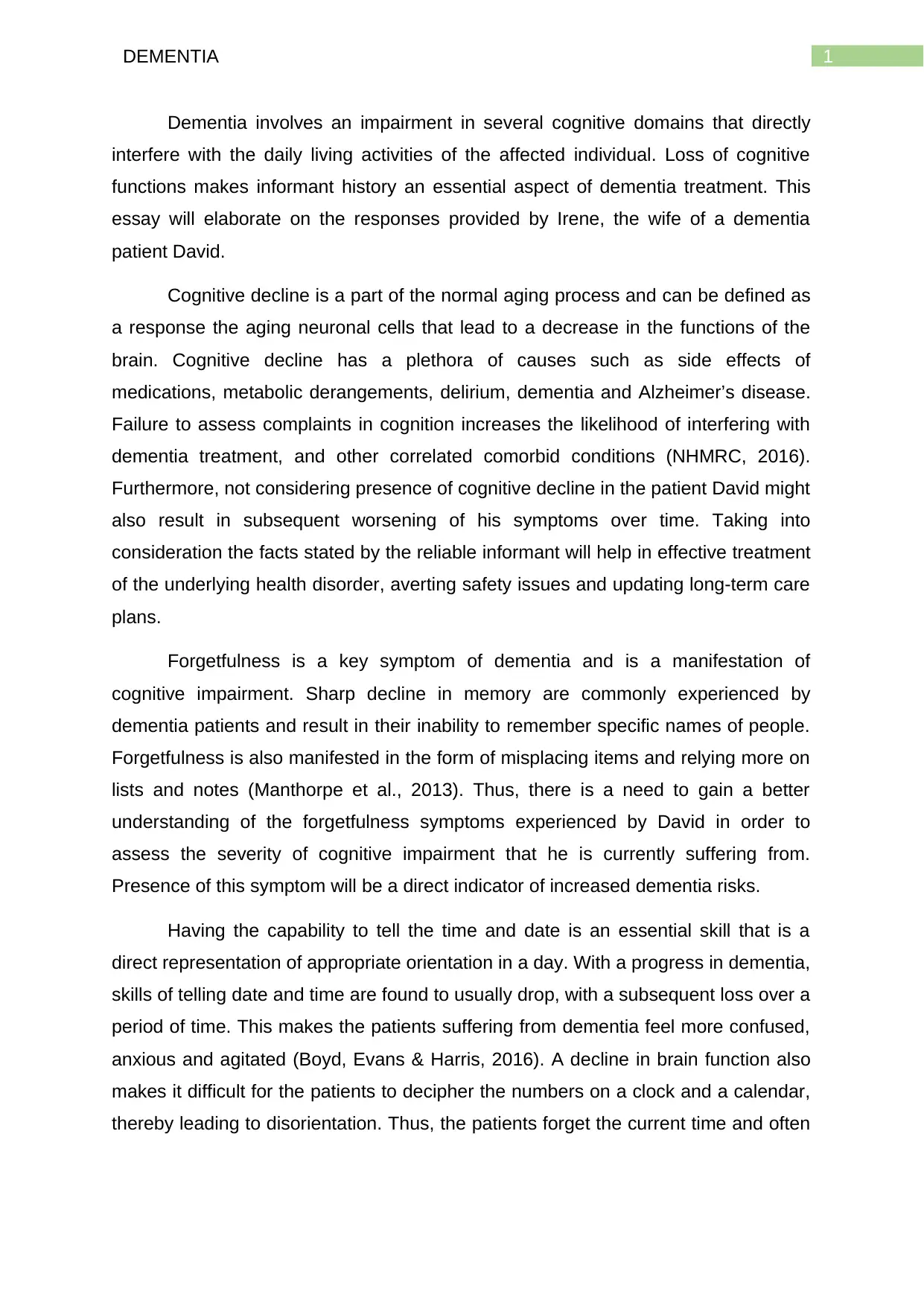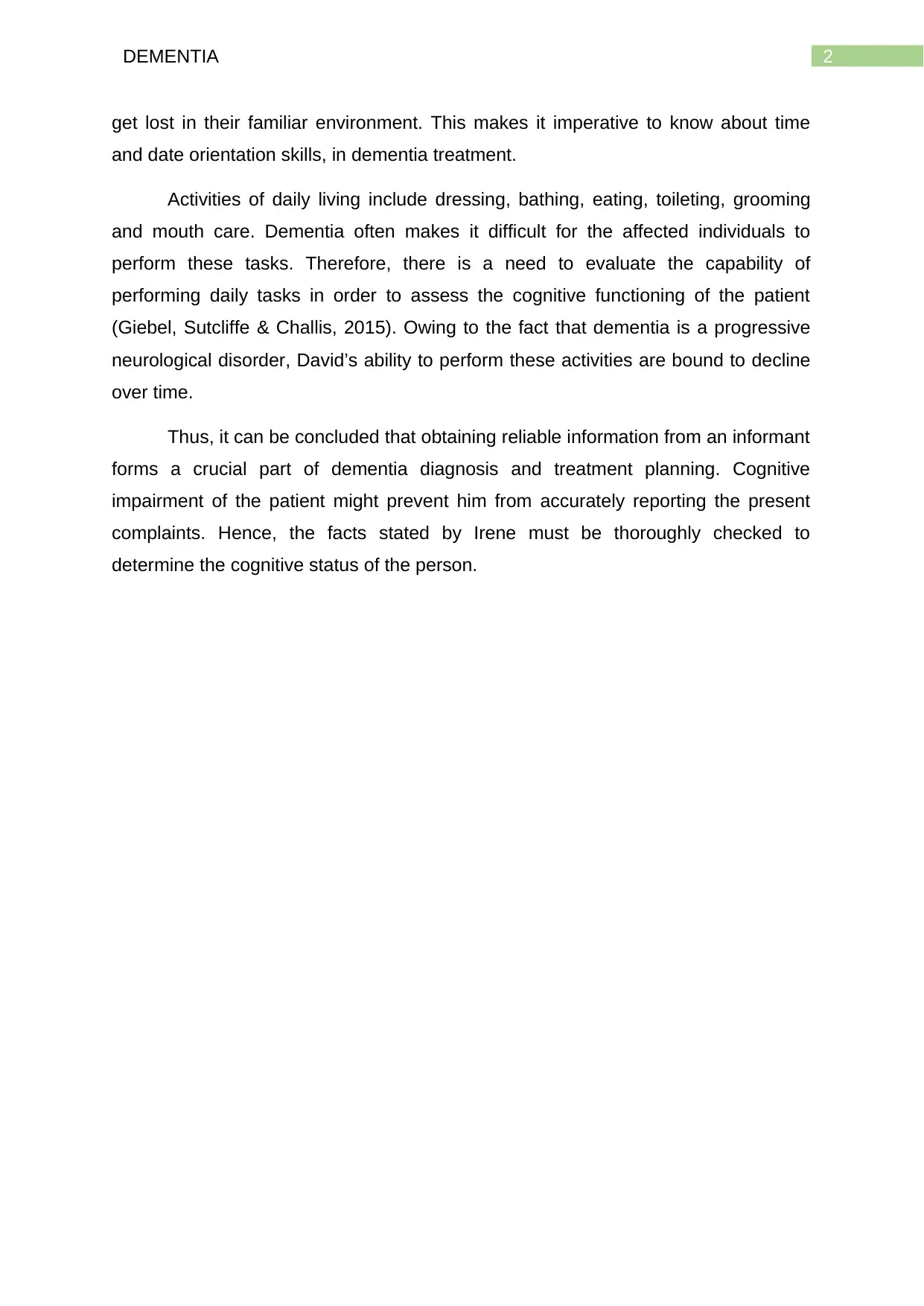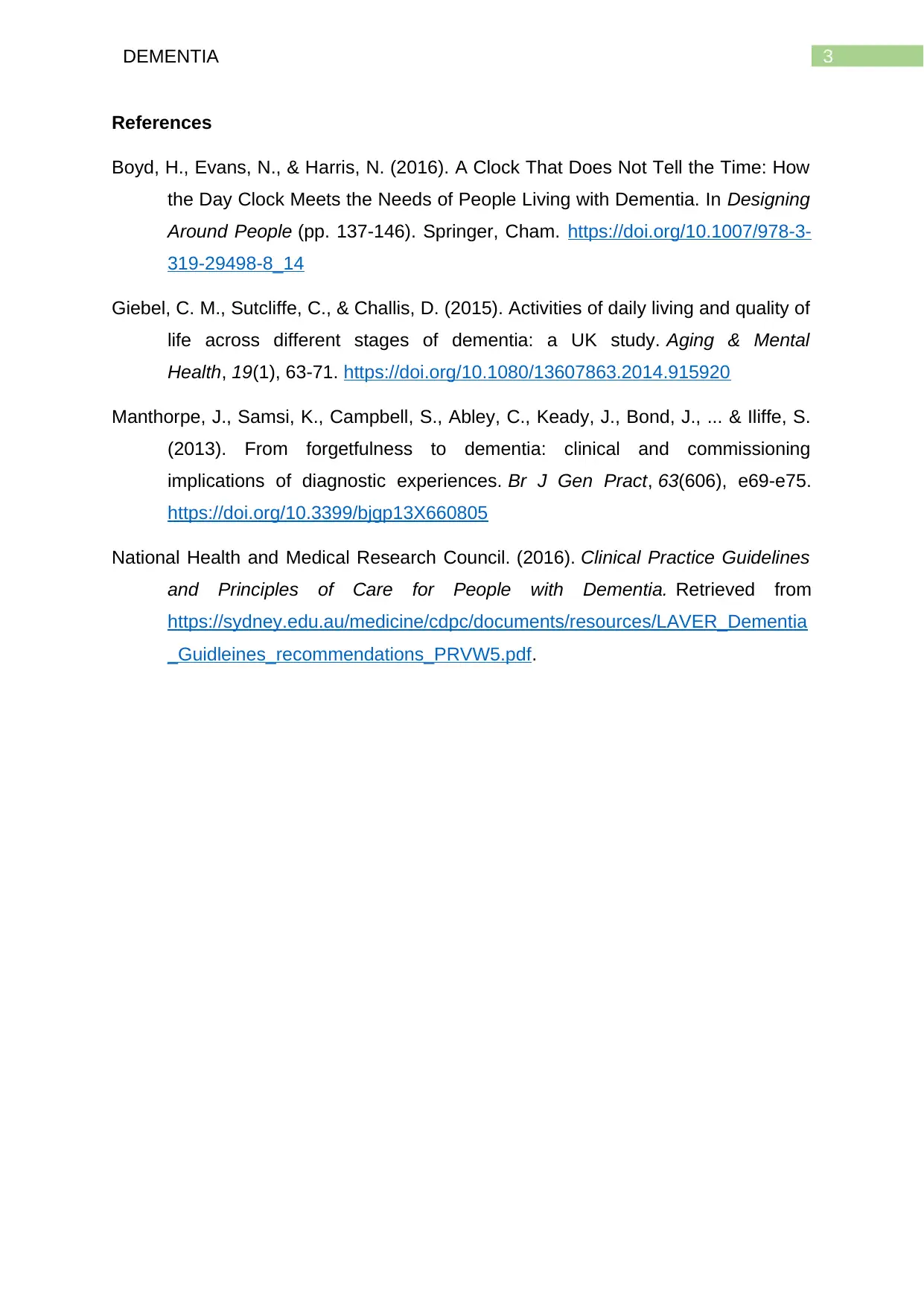Dementia: Symptoms and Importance of Informant History in Treatment
VerifiedAdded on 2023/06/08
|4
|812
|284
AI Summary
This essay discusses the cognitive decline, forgetfulness, time and date orientation, and activities of daily living in dementia patients. It emphasizes the importance of obtaining reliable information from an informant for effective diagnosis and treatment planning.
Contribute Materials
Your contribution can guide someone’s learning journey. Share your
documents today.
1 out of 4










![[object Object]](/_next/static/media/star-bottom.7253800d.svg)